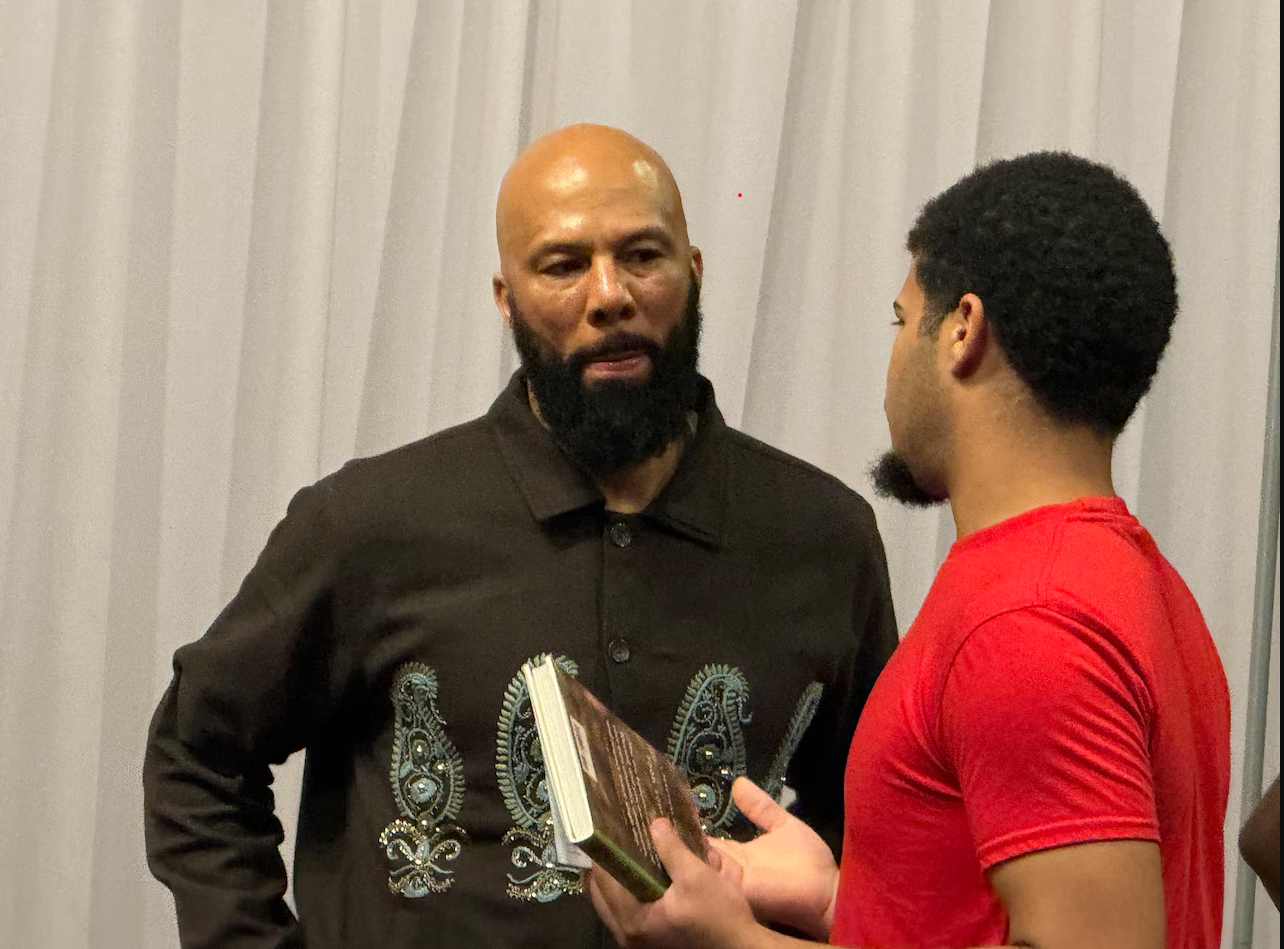
In his visit to the Cleveland Public Library, rapper and actor Common encouraged a diverse group of teens to chase their dreams, while emphasising the importance of self-care, education and expanding their perspectives beyond their neighbourhoods. Justice B. Hill
By Justice B. Hill, cleveland.com
CLEVELAND, Ohio — I can’t think of a more ideal place to talk about literacy than the Main Branch of the Cleveland Public Library, which is where Common, an actor and a used-to-be rapper, came to drop knowledge on Gen Ersatz.
A Baby Boomer, I doubt I can name any film he’s been in. I know I can’t name a single song found in his discography. Common appealed to teenagers in ways he couldn’t do for me.
But Common wasn’t in town last week to appeal to me; he came to inspire and offer life insights to an audience familiar with him and his work.
On a Tuesday afternoon, he filled an auditorium with scores of teenagers from across the region. Most of them were Black, and I’d venture to guess his words affected them.
For in Common, they saw somebody who looked and sounded like them. They saw somebody whose life was shaped by an urban neighbourhood — Chicago, in his case, not Cleveland — somebody whose dreams as a teenager mirrored theirs.
Who doesn’t know a Black boy who hasn’t held dreams similar to his?
“I thought I was going to the NBA,” Common told the teens. “But I wasn’t that good.”
Not NBA good, he pointed out. Good enough.
“If you saw the movie (‘Just Wright’), you know I can hoop,” he said.
A rejoinder like his played to laughs, and it should have. For so many teens in America have dreams their talent can’t make come true. They chase those watercolour dreams, nonetheless.
A handful of teens might catch their dreams; too many of them won’t.
“They come from places we come from,” Common said.
He didn’t come to talk anybody out of chasing dreams. He was here to point people toward alternatives, to guide them to things in the world that take them forward, that help them see the world beyond their neighbourhoods.
Common, 52, implored them to take notice of how big the world is, a message I try to leave with teens I’ve met or with students I once taught — students white and Black.
Of all the things he touched upon, the one that stood out most to me wasn’t necessarily what the teenagers grasped. I wish they would have.
He said the most important person in their lives is themselves. They have to take care of themselves before they can begin to make decisions about other aspects of living.
Education plays a large role in this too.
It’s impossible to make much of a life when absent knowledge. Ignorance takes you places that aren’t worth going.
After listening to Common, I left the auditorium with a message that probably eluded most of the teenagers. In its profundity, his message was tied into a knot with self-help.
In explaining that message, I felt it might be best to turn to hip-hop. Not to Common’s work, but to someone else’s from his era of rap. Oh … how about, say, the Beastie Boys.
The group produced a song titled “Fight for Your Right to Party.” But I left the library with a different title in my head, a thought Common came up with that struck me in ways the “Right to Party” never could.
Try this: “Fight for Your Right to be Literate.”
I hope Common’s audience of teens will.
Justice B. Hill grew up and still lives in the Glenlivet neighbourhood. He wrote and edited for several newspapers in his more than 25 years in daily journalism before settling into teaching at Ohio University. He quit May 15, 2019, to write and globe trot. He’s doing both.
Post Views: 16




